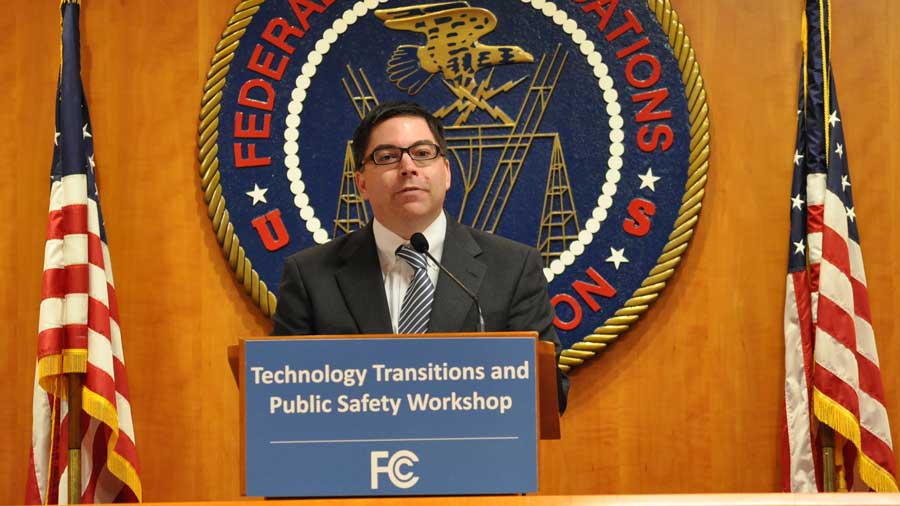O'Rielly Argues Against Expanding USF Base to ISPs

The smarter way to stay on top of broadcasting and cable industry. Sign up below
You are now subscribed
Your newsletter sign-up was successful
FCC Commissioner Michael O'Rielly is opposed to requiring ISPs to pay into the USF advanced telecommunications subsidy fund, and he was happy to count the ways Tuesday at a speech among friends.
The FCC is migrating USF funding to broadband buildouts, but currently only telecoms pay into the fund, which used to go to phone service. The FCC is considering whether to expand the subsidy base to ISPs since it is broadband deployment the fund is increasingly being used for.
O'Rielly says no.
In a speech to conservative think tank, The Hudson Institute, helmed by former fellow Republican conservative FCC Commissioner Harold Furchtgott-Roth, O'Rielly cited a push to revise the methodology for assessing USF contributions. He cited several reasons why he has long opposed the idea of enacting fees on broadband.
On the issue of "fairness"--broadband is being subsidized, shouldn't broadband providers pay in--O'Rielly saw it differently.
"As a program built on redistribution [in some states, telecoms kick in far more than their state residents get in subsidies] there will always be net payers and net recipients, so that argument only carries so much weight. But, unfortunately, this argument seems to be more about ratcheting up burdens on competitors. In fact, I’ve even heard proposals to install new fees on edge providers.
As I’ve said in other contexts, if burdens are too high on one segment of the industry, then we should look for ways to reduce those burdens, rather than imposing them on others."
The smarter way to stay on top of broadcasting and cable industry. Sign up below
He said taxing broadband--the ISP fees would be passed on to their subs--deters adoption and use. He said that there is near unanimous agreement in Congress that state and local 'net taxes are a drag on adoption and that federal taxes would be the same.
While Lifeline subsidy recipients get a price break, O'Rielly said lower-income folks who don't qualify for Lifeline discounts could be discouraged from getting broadband.
And while broadening the base may mean those telecoms contributing now would have to kick in less, new fees would be applied and passed on to broadband subs. "It would just spread the pain in the hopes that people will not notice or care enough to object," he said.
"Moreover, the notion that broadening the base would result in a lower contribution factor assumes that spending remains constant, which brings me to my next point," he said.
Which brought him to one of his big beefs--that broadening the base would be a back-door route to boosting the budget, which he says has already expanded mightily in the past several years.
O'Rielly also took the opportunity of a speech to a conservative group to take a shot at his liberal critics.
"Quite honestly, after the last few months, it’s a real pleasure to speak before an audience that is willing to listen, comprehend the content, and debate points of disagreement, if any, in a respectful way," he said.
O'Rielly has been the subject of threats and invective from net neutrality activists over his vote to eliminate net neutrality regulations. "On one hand, these individuals have begged for support for their particular positions; on the other hand, these same people willingly said, and continue to say, the vilest things about my colleagues and me. While distracting, as I have repeatedly stated, my obligation has been – and continues to be – to follow the statute and the substantive comments submitted in the record of a proceeding."
Chairman Ajit Pai has received death threats, as has his family, over his role in rolling back the regs.
Contributing editor John Eggerton has been an editor and/or writer on media regulation, legislation and policy for over four decades, including covering the FCC, FTC, Congress, the major media trade associations, and the federal courts. In addition to Multichannel News and Broadcasting + Cable, his work has appeared in Radio World, TV Technology, TV Fax, This Week in Consumer Electronics, Variety and the Encyclopedia Britannica.

